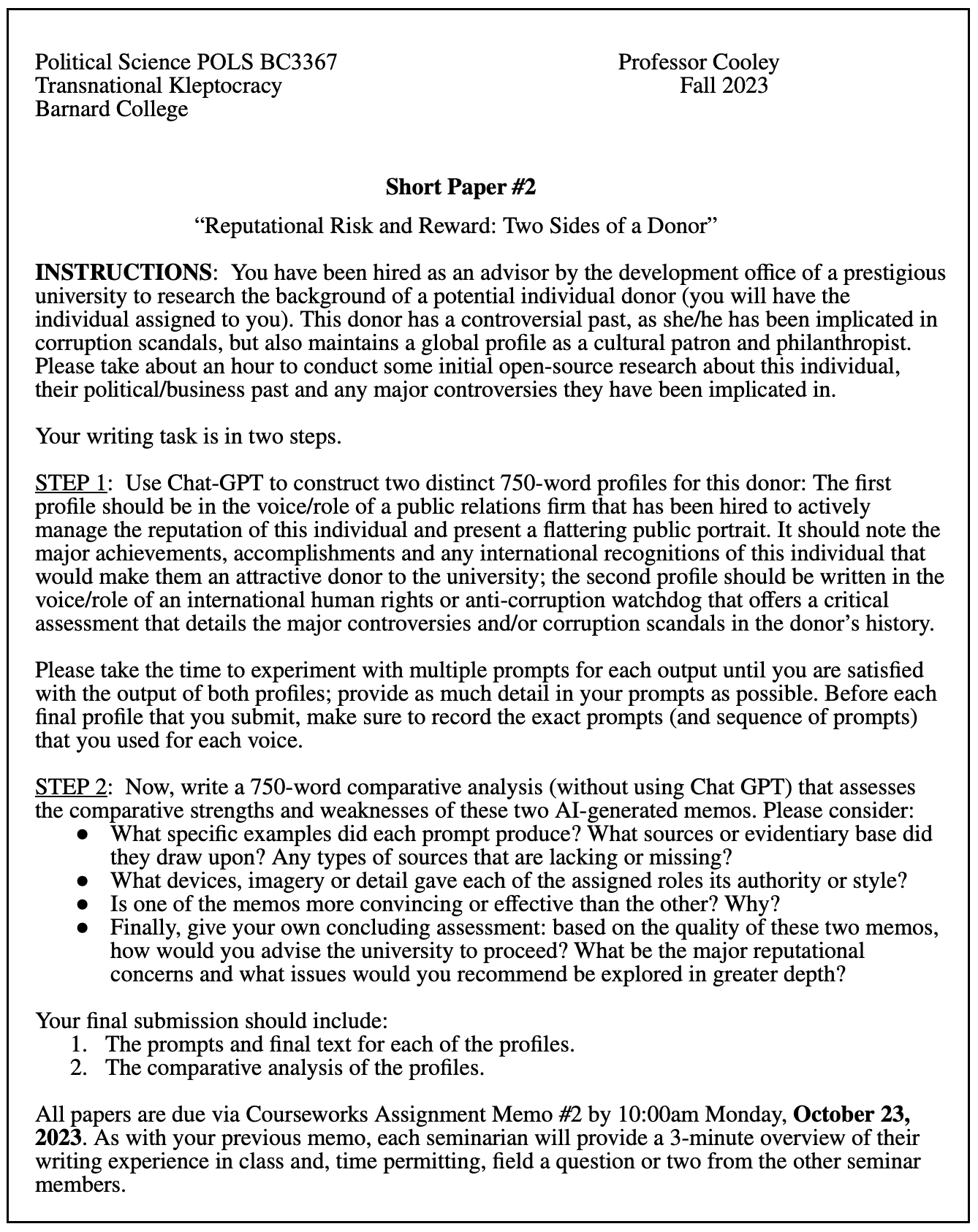ChatGPT Assignment Example with Professor Alexander Cooley
ChatGPT Assignment Example with Professor Alexander Cooley
Pedagogical justification for assignment

I’ve developed an assignment using ChatGPT for my upcoming “Transitional Kleptocracy” class in the Fall. The pedagogical justification for the assignment is as follows.
This assignment uses ChatGPT to explore how wealthy/politically influential individuals with controversial pasts (corruption scandals or political controversies) actively manage their global public profiles. The assignment asks students to use ChatGPT to write two profiles: a positive profile (in the style of a public relations firm) and a more critical profile (in the style of a human rights or anti-corruption watchdog) of a given individual with a controversial history (some may even have been sanctioned).
The first part of the assignment invites students, using some preliminary research, to develop detailed prompts to construct these contrasting profiles.
The second part of the assignment (without ChatGPT) invites the students to critically assess the relative strengths of the two profiles they have just generated. It is likely (though not certain) that the more positive profile will be the most convincing, as the publicly available information that ChatGPT has gathered will be more sanitized and plentiful than the controversial information, which tends to be deleted or sanitized (usually by reputation management firms) from public sources such as “Wikipedia.”
The goal of the assignment is to have the students use ChatGPT in these different roles and then probe the reasons why one role may be more effective than the other.
- Alexander Cooley, Claire Tow Professor of Political Science, Barnard College
View the Example Assignment Here
